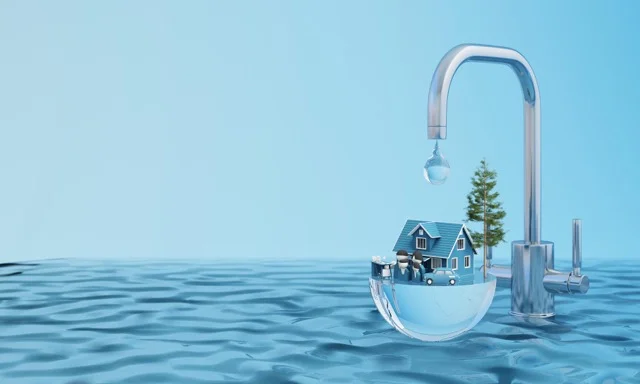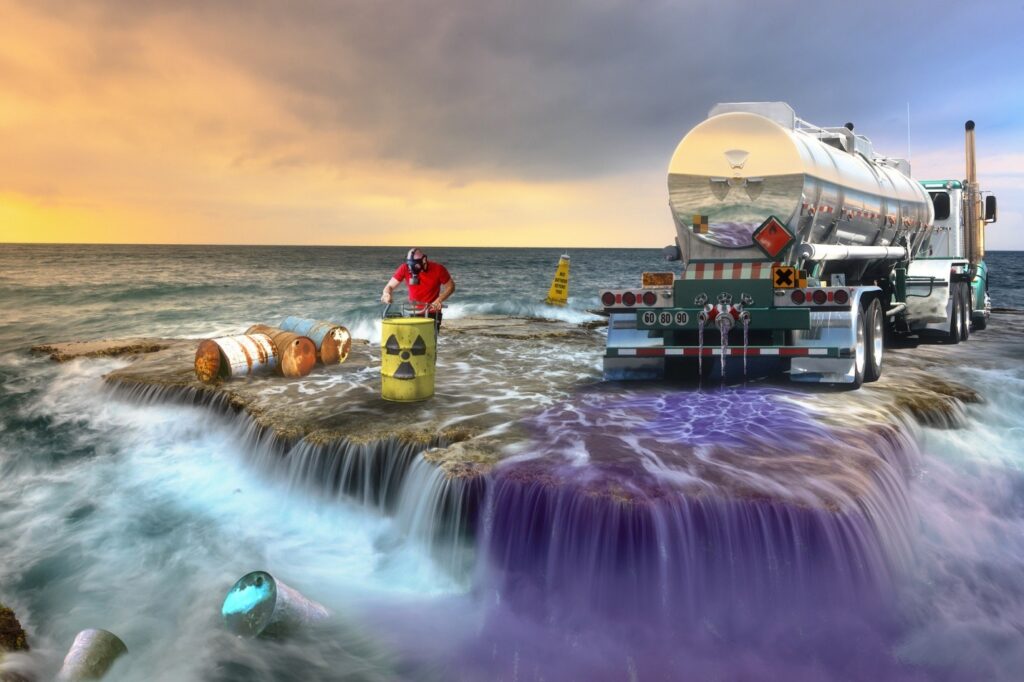The 8-Second Trick For Reclaim Waste
The 8-Second Trick For Reclaim Waste
Blog Article
About Reclaim Waste
Table of ContentsThe smart Trick of Reclaim Waste That Nobody is Talking AboutReclaim Waste for BeginnersWhat Does Reclaim Waste Do?The Ultimate Guide To Reclaim WasteThe 20-Second Trick For Reclaim WasteThe 10-Minute Rule for Reclaim Waste

Never ever place damaging materials down sinks, toilets or stormwater drains Materials consisting of fuel, oil, oil, chemicals and herbicides, and solvents such as paint strippers ought to not be put down sinks, commodes or stormwater drains. These compounds are tough to get rid of in the sewage treatment process and trigger air pollution troubles in our local waterways.

Although liquid waste is a term that covers a broad range of materials, there's an excellent reason leaving its disposal to the professionals is recommended. Fluid waste is non-solid material that has no further usage and has to be treated and thrown away according to local, state and federal regulations.
More About Reclaim Waste
Although examples of liquid waste can include wastewater, fats, oils or oil, used oil, liquids, solids, gases or sludges and harmful household fluids, there are some that are thought about to be much more hazardous than others when it pertains to the setting and the wellness of animals and human beings alike. It's for this factor that each state and territory have actually strict guidelines linked to fluid waste management.
Fluid waste can be saved in holding tanks or packaged in drums, intermediate mass containers or authorized small containers prior to either being dealt with or eliminated by means of outsourced vacuum cleaner vehicles. Provided the nature of the products, liquid waste can not enter the general waste stream and there are stringent policies on just how to throw away it properly.
(https://www.metal-archives.com/users/reclaimwaste1)Relying on a resolution of the degree of risk, it might be necessary to remediate those sites. On top of that, harmful liquid chemical wastes are managed waste and has to be tracked in accordance with the state waste regulations. Under the chain of guardianship and obligations, owners are accountable and accountable for waste generated by a service.
Among the core applications for superabsorbent polymers (SAPs) is liquid waste solidification. liquid waste removal. SAPs are utilized by waste monitoring professionals to avoid potentially hazardous fluids from going into rivers, groundwater aquifers, and various other sensitive settings. Because liquids can swiftly move pollutants into ecological receptors and potentially add to geotechnical failures, fluid wastes are nearly constantly prohibited from disposal in garbage dumps
An Unbiased View of Reclaim Waste
Primarily, complimentary fluids are liquids that divide from the strong section of waste product. Liquid waste can consist of the following: HDD mud and cuttings Land fill leachate Wastewater therapy sludge & biosolids Dredged sediments Oil and gas drill cuttings Clearing up fish pond filth Hydro Excavation slurry Coal combustion residuals/ash Container bottom sludge Concrete grinding/polishing slurry Related Short article: For a functional example of free fluids separating from waste product, consider the adhering to circumstance: A waste administration service provider tons a dump associate sludge from a wastewater therapy plant's aeration container, during a routine maintenance occasion.
When the motorist arrives at the landfill, he notices water leaching from the sludge and pouring from the dump vehicle. The lots was turned down by the land fill and the chauffeur was required to get rid of the waste as a fluid waste at a special center, which enhanced the disposal charges enormously.
The world is sinking in rubbish and we can't pay for to be careless any longer. We need to act and reuse whatever we can wherever we can. We also need to be responsible for the correct disposal of our waste materials. It is insufficient that we pay garbage disposal business to look after our rubbish.
The 5-Minute Rule for Reclaim Waste

Segregating your waste can start inside the home. Segregate dry and fluid waste as well as edible waste, eco-friendly and non-biodegradable products.
You can use old trash bin, container, yard pot or old plastic drums. Pierce 4 to 5 openings in the container so the air can circulate. Layer all-time low with soil to take in the damp waste. Beginning the composting procedure. Layer the garden compost with damp and dry waste as well as soil to keep an equilibrium between the damp and the completely dry.
The 2-Minute Rule for Reclaim Waste
Cover the garden compost container. As soon as a week, include dirt in addition to the garden compost. To promote faster decomposition, you can likewise add semi composted dirt to the garden compost. Preserve the garden compost. If you notice the odor is ending up being also strong, add added papers and paper waste or add more holes to the garden compost container to maintain the equilibrium of the waste materials.
The globe is sinking in rubbish and we can not manage to be careless anymore. We have to do something about it and recycle whatever we can any place we can. We additionally require to be in charge of the appropriate disposal of our waste materials. It is inadequate that we pay waste disposal business to deal with our rubbish.
Our waste, our obligation. Have you ever before wondered what occurs to your fluid waste after it's collected? Did you understand that liquid waste can be recycled? As liable residents, you should comprehend what happens to your rubbish and where it goes after it is eliminated from you. Comprehending the liquid waste elimination procedure is essential in aiding you to segregate your waste.
The smart Trick of Reclaim Waste That Nobody is Talking About
The perfect location is a great outdoor area with lots of sunlight and air. Segregate your waste. Segregating your waste can begin inside the home. Segregate completely dry and liquid waste as well as edible waste, eco-friendly and non-biodegradable materials. Always keep the lid on your containers to stay clear of insects, worms, flies, and unpleasant odours.
Layer view it the base with dirt to absorb the wet waste - liquid waste removal. Layer the compost with damp and dry waste as well as soil to preserve an equilibrium in between the wet and the dry.
Cover the compost container. Once a week, add dirt on top of the garden compost. To help with faster disintegration, you can likewise add semi composted soil to the garden compost. Keep the garden compost. If you discover the smell is coming to be as well strong, include added papers and paper waste or include even more holes to the compost bin to keep the balance of the waste products.
Report this page